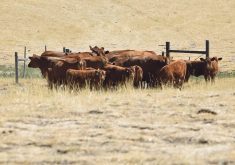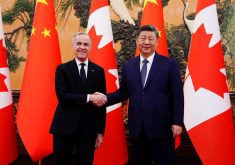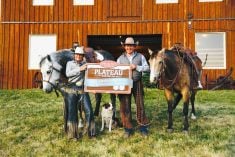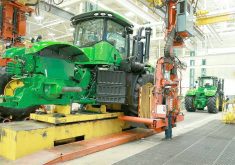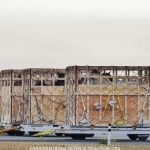It is an anxious time in our little world.
The Internet brings us to the front lines every day as we watch and anticipate the outcome of conflict around the globe. As I scanned the news, I thought of the suffering of women and children — who asked no part in this charade. And I thought of farmers — men and women who toil, only to watch their crop and sole food supply torched.
We now know that many farmers will not get paid as political interests have shifted, particularly in Iraq where government has stopped buying from farmers because rebels own the wheat. Farmers were already on a delayed payment scheme (something very common worldwide) and now must face certain poverty. The inflation of not only food but crop inputs will leave many areas barren of crop or cover and this erosive land will further deteriorate. And so the cycle begins, war leaves both human and environmental casualties.
Read Also

Deep cuts to ag research jeopardize Canada’s farming future
The huge cuts to ag research at Agriculture Canada are being widely panned by farm organizations, but there seems to be little hope of the government reversing its decision.
I recall spending time with General Rick Hillier, Canada’s former top soldier, and having a conversation about war. Was war, I asked, about food, water and resources? General Hillier replied war was about power, but food, water and resources were the weapons of war. To put this into perspective, conflict is driven by one madman who controls at all cost — the cost of human lives, animal lives, plant life, and future development.
As Canadians, we cannot appreciate that postwar trauma includes the erosion and contamination of soil, air and water. The loss of sound from the death of food animals, pets and songbirds is a deafening silence. From an agricultural perspective, war is the ultimate death of the world in which we live.
For rural communities, help in the form of democracy is not enough. There needs to be a basket of tools and technologies, seeds and bulbs, market access and safe transport before a farm can be reborn. Many times to expedite economic progress, mono crops are pushed. In Afghanistan, that crop was poppies grown for the drug trade — another result of post-traumatic stress and the influence of western culture.
In Ukraine, where our team visited in 2012, a lack of vision was keeping the lid on agricultural growth. Despite the vast river system to port, agricultural goods were not on board. Corruption, theft, and the lack of political will along with a moratorium on agricultural land ownership stifled growth domestically and internationally even before the recent conflict. Today, the ban on agricultural imports by Russia will further create hardship in rural communities, including Ukraine, where the once-held hope of further processing is now all but abandoned. The words of one Ukraine farmer host in 2012 were prophetic: “We don’t trust the time we are in. We don’t believe this change is staying.”
Russia has recently risen to become the second-largest importer of agricultural goods after China. The ban on North American agricultural products resonates down to our farms and greenhouses. Lack of investor confidence at a time when agriculture was the in thing, has led to strong corrections on commodity boards and concern in the pen, field and garden.
Landmines, missiles, gases, and chemicals are destroying the growing earth and the transportation arteries. Farmers in Syria work under missile fire until they are forced to flee. Whole or maimed, farmers become part of the swell of humanity that must leave their land, region or country for safety reasons. Behind them they leave the bleating of starving sheep, dogs, calves and their whole sense of identity.
But once a farmer always a farmer.
History tells us that most farmers return to wartorn lands, barns and gardens. The road there is certainly the one least travelled as they face danger in the ground tripping through postwar rubbish that remains explosive. Investment into rebuilding rural areas is scarce and large companies are fearful. So farmers around the world, many of them women, start again — one field at a time.
Although we are many miles apart, we share the same earth and the same sky. The economies on Alberta’s farms have rippled as other farmers fight for survival. It is one world, this world of farming, in which we share common values and beliefs. A unity of persons of every colour and nation that strive to grow food, protect environments and increase trade for our families, communities and countries.
As we sell our fat calves, sit on our massive technically advanced combines, eat the bounty from our garden, and fish from clean, clear water, let us remember these fellow families and like-minded farmers with pure and genuine harvest gratitude.




